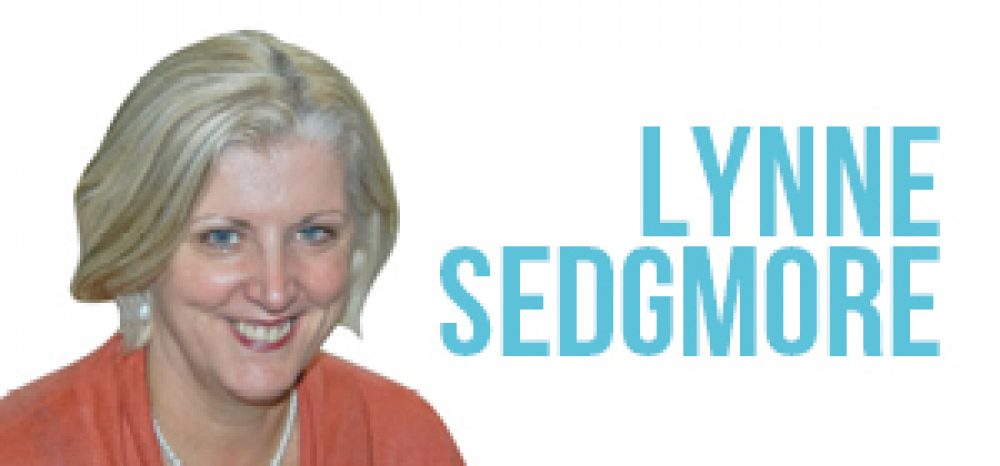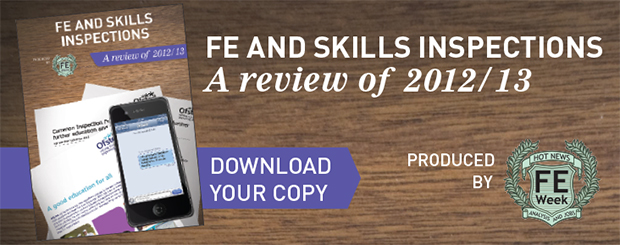A new focus on teaching and learning may well have become the valued hallmark of Ofsted’s current common inspection framework, but, asks Lynne Sedgmore, is there scope for a wider examination of the college offer?
Over this past year, mention of Ofsted has generated mixed emotions in many colleges.
Some ill-informed remarks have been made, grades have fallen — and risen — and the overall narrative has been one of ‘system failure’ in skills, and lack of attention on teaching and learning.
It is important to acknowledge appropriate criticisms of the system — particularly perverse funding which has created bizarre incentives and an over focus on chasing funding and qualifications.
We would add to the systems failure, an inspection framework which did not always focus on the broader aspects of colleges in their diverse communities.
So it is good to feel the future is turning to one of collaboration and better mutual understanding.
There is a huge risk that the current view of college success is severely limited by the criteria used in the CIF.”
Those who work in Ofsted are, on a human level, interested in the same things as the rest of us — student success and educational excellence. It is foolish to argue that the focus of the common inspection framework (CIF) is not right in these respects. A clearer, stronger focus on excellence in teaching, learning and assessment through understanding what actually happens in the classroom rather than looking primarily at results on paper has to be welcome.
And allying every judgment to the core business of teaching and learning is vital.
The 157 Group has long argued for colleges to work with Ofsted in a mature manner, not seeing them as the enemy, but as professional partners, with differing perspectives, to bring about needed change.
Ofsted plays a crucial and invaluable role in providing a nationally-recognised quality mark — and, for some constituencies (often parents, used to dealing with schools), it is their primary quality assessment tool.
However, there is a huge risk that the current view of college success is severely limited by the criteria used in the CIF and we would argue that the nature of a successful college is much broader in scope. There is a public perception that Ofsted judgments are made on the whole college. In reality, this is not the case.
Colleges are integral to their community and any judgement of their success should also include the extent to which they have contributed to the skills and growth of their locality — as demonstrated in their unique mission. 157 Group is keen to work with other college membership groups and Ofsted to set in motion a movement which requires additional processes and mechanisms for assessing the overall performance of colleges.
The outcome of such enhanced processes and mechanisms will provide judgements and information which will be useful, meaningful, reliable and relevant for everyone who has a stake in the skills and success of our society and economy.
We believe that colleges already hold an additional wealth of evaluation material that can usefully sit alongside current Ofsted criteria to give a more complete and rounded picture.
Suggested examples include student testimonies and industry or sector awards — awards, gained through competition and judged by peers and recognised experts in teaching and learning demonstrate innovation and excellence in the leadership of teaching and learning; and, student evaluations and employer satisfaction surveys, which demonstrate customer satisfaction and stakeholder feedback.
Further examples are winning contracts in competitive bidding processes — the recruitment of both fee-paying and employer-sponsored students and the number of associated entrepreneurs or spin-off companies demonstrates employer engagement; and genuine engagement with local enterprise partnerships and economic impact studies, which demonstrate a contribution to the local economy and community.
Finally, there’s global brand recognition — awards for international provision demonstrate the reputation of a college and the contribution they make to globalisation and UK plc; and, college support and sponsorship of university technical colleges, academies and other 14 to 19 models, which show how the college is an integral part of a whole phase approach to learning.
The future is bright – and the future may be Ofsted-plus?
Lynne Sedgmore, executive director, 157 Group









Your thoughts